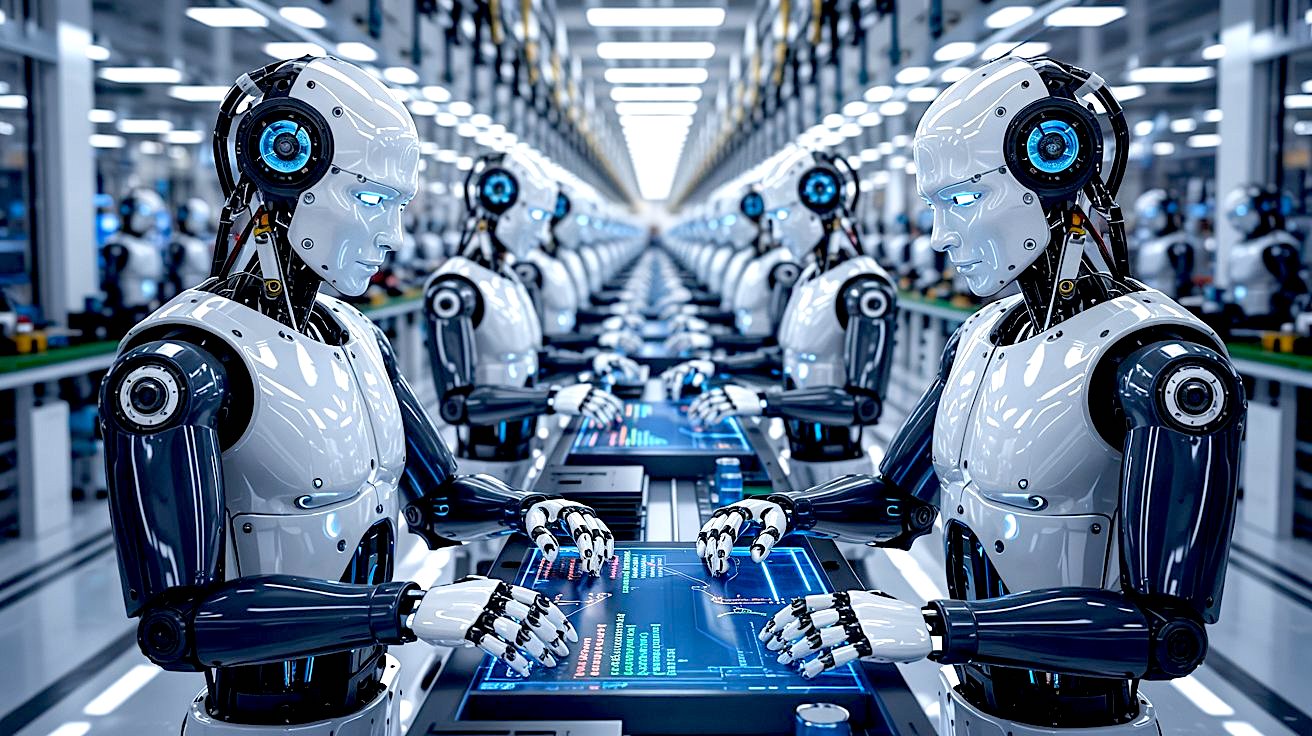 AI
AI
 AI
AI
 AI
AI
Artificial intelligence is everywhere in software development. From GitHub Copilot to Claude Code, companies are integrating AI into their engineering workflows at breakneck speed.
The promise? Faster code delivery, fewer bottlenecks and higher productivity. But this industrial-era obsession with efficiency fundamentally misunderstands the nature of software engineering.
At the risk of stating the blindingly obvious, software delivery is about much more than churning out code — it’s about solving hard, unique problems in ways that create value. And ironically, the relentless pursuit of efficiency through AI can make software teams less effective, not more.
Developer productivity has long been a contentious issue. At one extreme, you have an industrial-era viewpoint that the production of code should be treated as an assembly line where you might apply the productivity ideas from the likes of Frederick Winslow Taylor and Henry Ford. This fundamentally misunderstands the nature of knowledge work.
If you optimize your developers’ workflows, eliminate time “wasted” on non-coding activities, or measure success by lines of code shipped, you might feel you have a productive engineering team, but it’s unlikely to be driving organizational success. Unlike assembling widgets on a factory floor, first-rate software delivery requires deep problem-solving, collaboration and long-term thinking.
Companies that prioritize AI for speed risk accelerating the wrong things. Instead of making software better, they end up generating more low-quality code, stockpiling technical debt at an unprecedented pace. Speeding up bad decision-making isn’t a win — it’s a liability.
But it’s also worth acknowledging why productivity has become such a hot-button issue. Too many organizations still suffer from information technology project overruns and spiraling budgets. The promises that were made to executive leadership about the latest technology are not coming to fruition quickly enough. If that sounds familiar it may be worth pausing before promising to unleash a new wave of AI-driven productivity.
We can already see some of the grand claims made about AI’s potential when it comes to coding. Personally, I don’t believe that we are “six months from a world where AI is writing 90% of the code.” despite what Anthropic Chief Executive Dario Amodei says. But even so, such promises are in line with other grand claims being made about AI.
Rather than help drive business value, the promises about productivity risk focusing executives’ attention on the wrong things.
I believe that we are on the cusp of a sea change thanks to AI. For developers, this change will be akin to the shift from assembly languages to high-level languages. Back then there were many predicting that COBOL would do away with the need for programmers. Of course, no such thing happened — instead the radical changes were about how we think about the process of software delivery. The same will happen with AI.
At Thoughtworks, we already have teams exploring the possibilities of so-called “prompt to code,” and there’s huge potential there. We’ve seen AI coding assistants excel when it comes to tasks involving repetitive or boilerplate code; they can help in areas such as test generation and error detection. Indeed, right across the software delivery lifecycle, we think there are opportunities to leverage this new breed of AI tools.
None of that changes my view that AI tools should be viewed as complementary to human efforts rather than replacements for developers.
We employ several thousand people to work on software delivery. And without exception, none of them was employed on the basis of how quickly they can code. Instead, our developers are hired for their problem-solving skills.
From a personal perspective, I often find my best ideas are the ones that come to me while I’m out walking. This type of knowledge working can’t readily be captured in typical productivity measures but it’s critical to my success as a professional.
And there’s the rub: If you’re measuring the success of software delivery by the speed at which you can generate code, you’re setting yourself up to fail. Your teams will be rewarded for the wrong things, instead focus on what these AI tools can do to make your people more effective. Here’s my four key tips to leveraging AI successfully:
Rachel Laycock is chief technology officer at the technology consultancy Thoughtworks. She wrote this article for SiliconANGLE.
Support our mission to keep content open and free by engaging with theCUBE community. Join theCUBE’s Alumni Trust Network, where technology leaders connect, share intelligence and create opportunities.
Founded by tech visionaries John Furrier and Dave Vellante, SiliconANGLE Media has built a dynamic ecosystem of industry-leading digital media brands that reach 15+ million elite tech professionals. Our new proprietary theCUBE AI Video Cloud is breaking ground in audience interaction, leveraging theCUBEai.com neural network to help technology companies make data-driven decisions and stay at the forefront of industry conversations.